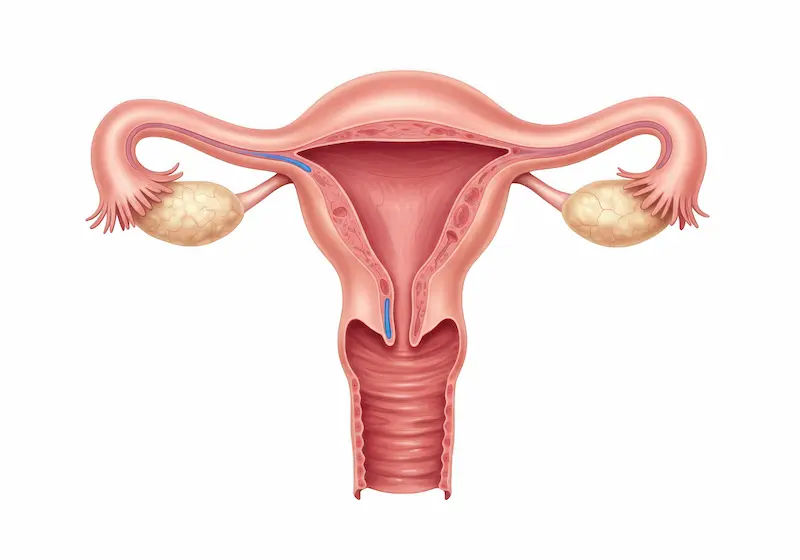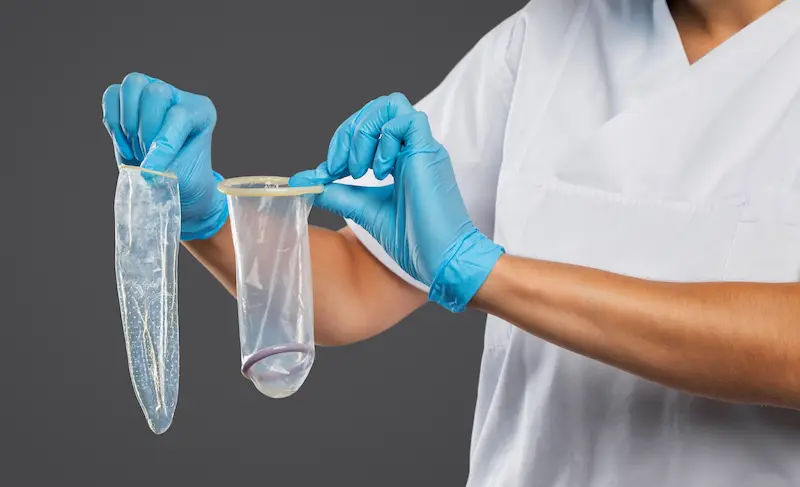- Female
- 23 Years
- 22/01/2025
Can you have PCOS but still have regular periods? My ultrasound just mentioned I have bilateral polycystic ovaries, not PCOS or PCOD. What does that mean?
Answered by 1 Apollo Doctors
Bilateral polycystic ovaries, also known as polycystic ovary syndrome (PCOS), is a hormonal condition that affects the ovaries. It occurs when the ovaries produce too many androgens, which are hormones that prevent follicles from maturing and releasing eggs. This results in the ovaries becoming enlarged and containing many small cysts. PCOS is a common condition that affects women of reproductive age. Symptoms include: Irregular or missed periods Excess hair growth Acne Weight gain Darkening of the skin Skin tags Thinning hair
Dr. Anshul Suggests...
Consult a Obstetrician and Gynaecologist
Answered 04/07/2025
0
0

Ask Apollo
AI powered Health Chatbot
-
Understanding PCOS and Menstrual Regularity
- PCOS can present with regular periods, especially in early or mild cases.
- Regular periods do not rule out PCOS; other symptoms and tests are crucial for diagnosis.
-
Meaning of Bilateral Polycystic Ovaries on Ultrasound
- 'Bilateral polycystic ovaries' means multiple small follicles in both ovaries on ultrasound.
- This finding alone does not confirm PCOS or PCOD.
-
Difference Between Polycystic Ovaries and PCOS/PCOD
- Polycystic ovaries can be a normal variant without hormonal imbalance or symptoms.
- PCOS diagnosis requires clinical symptoms, hormonal tests, and ultrasound findings.
-
Importance of Comprehensive Evaluation
- A full clinical assessment, including symptoms, blood tests, and ultrasound, is needed for diagnosing PCOS.
- A healthcare provider, such as a gynecologist or endocrinologist, can guide diagnosis and management.
-
Reassurance and Next Steps
- Having polycystic ovaries on ultrasound without symptoms is not necessarily a disease.
- Monitor symptoms and consult a specialist if concerns arise or symptoms develop.
Recommended next steps
Consult a Obstetrician and Gynaecologist or Consult a Endocrinologist
Answered 20/08/2025
0
0

More Obstetrics & Gynaecology Health Queries
View allMy 40-year-old mom has three kids and was diagnosed with fibroids. The doctor says it's nothing to worry about right now, but we're still concerned. Can fibroids shrink with medication, or is surgery the only option? We'd really appreciate some clarity on this.
Fibroids may shrink with medication, but if they cause significant symptoms or complications, surgery may become necessary. A second opinion from a gynecologist could help clarify the best course of action.
Answered by 1 Apollo Doctors
my uterus is infected and the doctor says it needs to be removed after two c-sections. i'm confused between open surgery and laparoscopy which one would be better for me? also can you recommend some good hospitals in patna, delhi, or kolkata for this procedure?
I need to see the reports according to which the doctor had said that uterus is infected.. If removal is needed laproscopic surgery can be done..
Answered by 1 Apollo Doctors
I'm 15.3 weeks pregnant and I missed my NT scan and double marker test. I'm 31 years old, and I'm not sure what I should do next. Can you please guide me?
Visit your Physician for appropriate management
Answered by 1 Apollo Doctors
Disclaimer: Answers on Apollo 247 are not intended to replace your doctor advice. Always seek help of a professional doctor in case of an medical emergency or ailment.





